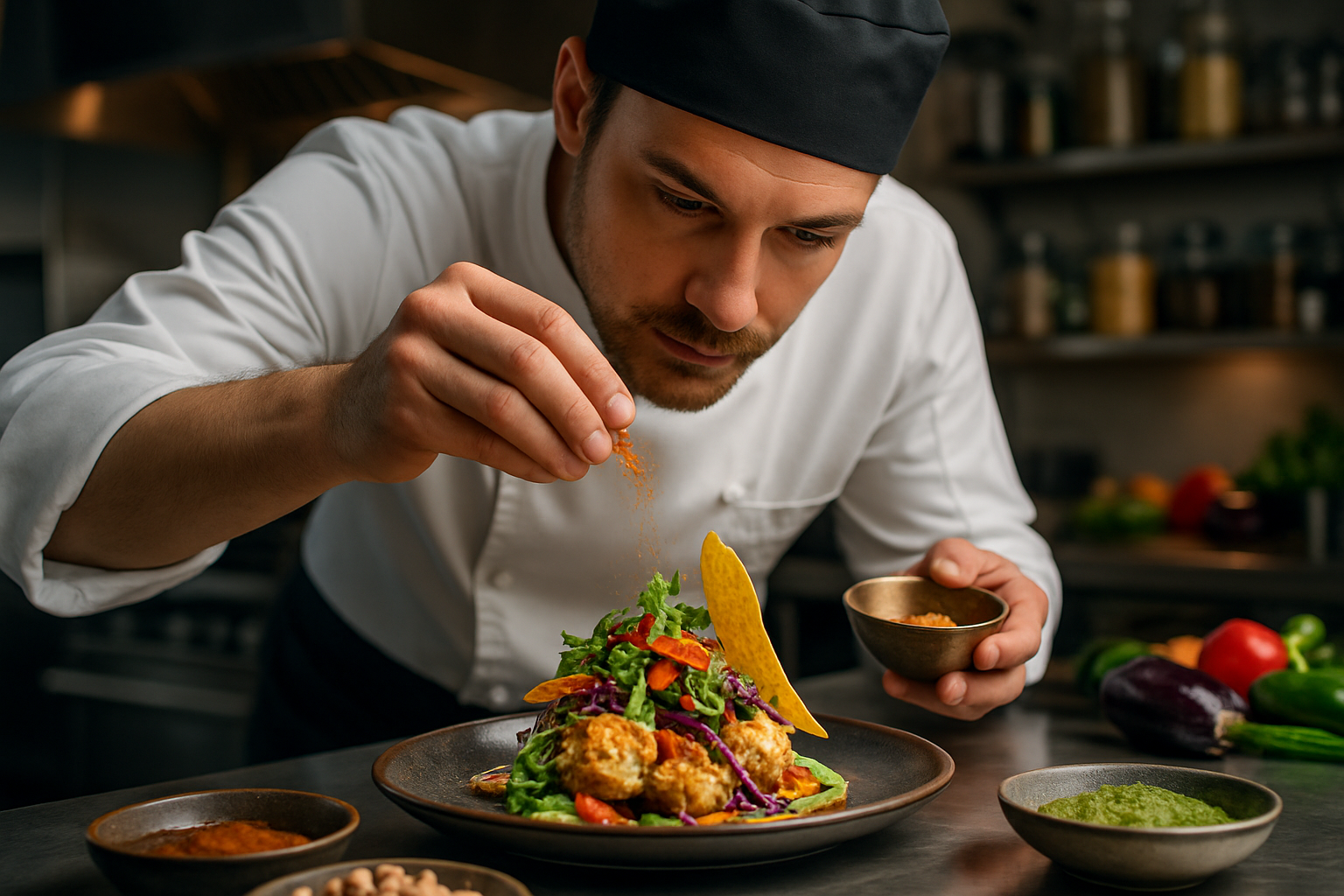Culinary Activism: Gastronomy as a Tool for Social Change
The intersection of food and social justice is giving rise to a new form of activism that's as delicious as it is impactful. Culinary activism leverages the universal language of food to address pressing societal issues, from inequality to environmental concerns. This movement is redefining how we view our plates, transforming meals into powerful statements of cultural identity, political beliefs, and social responsibility. Read below to explore how gastronomy is becoming a catalyst for meaningful change in our communities and beyond.

The seeds of contemporary culinary activism were planted in the mid-20th century with the rise of counterculture movements. Vegetarianism and veganism, for instance, became more than dietary choices; they evolved into statements against industrial farming and animal cruelty. Similarly, the organic food movement emerged as a response to concerns about pesticides and environmental degradation.
As these movements grew, they began to intersect with broader social issues. Food deserts in low-income areas highlighted the connections between nutrition and socioeconomic inequality. The slow food movement arose as a counterpoint to the homogenization of global cuisine, emphasizing local traditions and sustainable practices.
From Farm to Table to Social Change
Today’s culinary activists are taking these ideas even further, creating a multifaceted approach to food-based social change. One of the most prominent aspects of this movement is the focus on food sovereignty. This concept goes beyond mere access to food, advocating for communities’ rights to define their own food systems. Culinary activists work to empower marginalized groups to reclaim their culinary heritage and challenge the dominance of industrial agriculture.
Urban farming initiatives exemplify this approach. In cities across the globe, community gardens are springing up in vacant lots and rooftops. These projects not only provide fresh produce to food-insecure neighborhoods but also serve as educational hubs, teaching valuable skills and fostering community bonds. Moreover, they challenge the notion that cities must be disconnected from food production, promoting a more sustainable and resilient urban ecosystem.
The Chef as Activist
Professional chefs are increasingly stepping out of the kitchen and into the role of social changemakers. Many are using their platforms to raise awareness about issues like food waste, labor practices in the restaurant industry, and the importance of supporting local farmers. Some chefs are going even further, establishing non-profit organizations and social enterprises that use culinary skills as a tool for empowerment.
For instance, initiatives that train formerly incarcerated individuals in culinary arts not only provide valuable job skills but also challenge societal stigmas. Other programs focus on teaching cooking skills to underprivileged youth, promoting both nutritional education and potential career paths. These efforts demonstrate how culinary expertise can be leveraged to address systemic social issues.
Gastrodiplomacy: Food as a Bridge Between Cultures
An intriguing aspect of culinary activism is its potential for fostering cross-cultural understanding. Gastrodiplomacy, a term coined in the early 2000s, refers to the use of food as a medium for cultural exchange and international relations. This concept has been embraced by both grassroots organizations and national governments.
Through food festivals, cultural exchanges, and collaborative cooking projects, culinary activists are creating spaces for dialogue and mutual understanding. These initiatives go beyond mere culinary tourism, encouraging deep engagement with the cultural, historical, and social contexts of different cuisines. By sharing meals and stories, participants can challenge stereotypes and build empathy across cultural divides.
The Digital Plate: Social Media and Culinary Activism
The rise of social media has provided culinary activists with powerful new tools for spreading their message. Platforms like Instagram and TikTok have become virtual battlegrounds in the fight for food justice, with activists using visually striking content to educate and inspire their audiences.
Hashtag campaigns have proven particularly effective in mobilizing support for various causes. From #MeatlessMonday promoting plant-based diets to #NoFoodWaste raising awareness about food waste, these digital movements are translating online engagement into real-world action. Moreover, social media has allowed grassroots initiatives to gain global visibility, connecting like-minded individuals across geographical boundaries.
Challenges and Criticisms
Despite its potential, culinary activism faces several challenges. Critics argue that some forms of food-based activism, particularly those centered around organic or artisanal products, can be elitist and inaccessible to lower-income communities. There’s also the risk of cultural appropriation, as cuisines from marginalized communities gain popularity in mainstream culture.
Additionally, the effectiveness of culinary activism in addressing systemic issues is sometimes questioned. While changing individual eating habits can have an impact, some argue that larger policy changes are necessary to create meaningful societal shifts.
The Future of Culinary Activism
As the movement continues to evolve, culinary activists are finding innovative ways to address these challenges. Many are focusing on making sustainable and ethical food choices more accessible to all socioeconomic groups. There’s also an increasing emphasis on supporting and amplifying the voices of indigenous and minority chefs, ensuring that culinary activism remains inclusive and representative.
Looking ahead, the intersection of technology and culinary activism holds exciting possibilities. From apps that connect consumers directly with local farmers to blockchain systems that ensure transparency in food supply chains, technological innovations are opening new avenues for food-based social change.
Culinary activism represents a powerful convergence of gastronomy, social justice, and cultural expression. By harnessing the universal appeal of food, this movement is creating tangible change in communities around the world. As we face global challenges like climate change and inequality, the role of culinary activism in shaping a more just and sustainable food system is likely to become increasingly significant. The next time you sit down for a meal, remember: your plate might just be the most potent tool for social change you have at your disposal.






